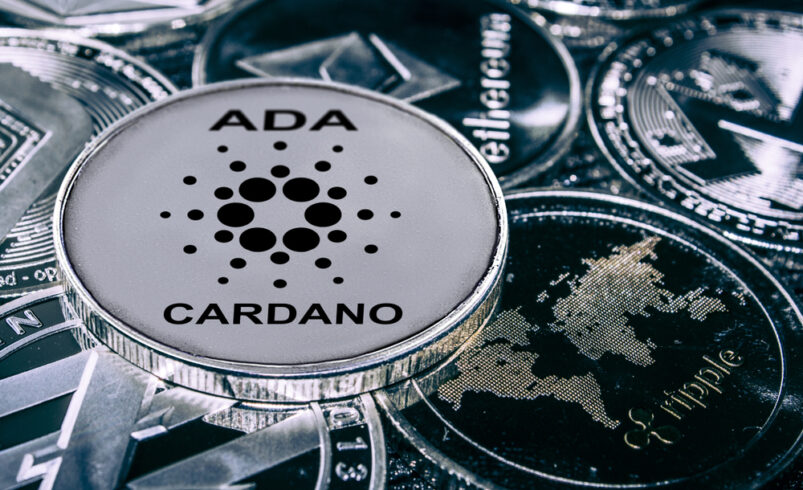Everything You Need To Know About Hardware Wallets

What is a Hardware Wallet?
Cryptocurrencies are not tangible goods; therefore, investors need digital wallets to store and manage their reserves. There are many different types of wallets depending on their features. There are non-custodial wallets that grant users full control over their wallet contents and private keys.
On the other hand, there are also custodial wallets where private keys are reserved with the digital currency services provider.
Software wallets are present in the form of extensions, applications, and desktop programs etc. They are also actively connected to the internet.
Hardware wallets are like USB drives that can be used to store the digital currency holdings in a device that can be connected or disconnected from the internet.
Try Crypto Engine today, the best crypto trading bot! Click here to sign up. Artificial intelligence crypto bots are leading the trading markets, you can take part in the AI revolution and make money too! Stay ahead of the crypto game with Artificial Intelligence crypto trading bot today!
Why Use Hardware Wallets?
Here are some of the important reasons to use hardware wallets:
Security
Hardware wallets are very secure and they have the ability to store cryptocurrencies away from the reach of the threat actors. Hardware wallets allow investors to store their virtual currencies away from active internet connection which makes them cold storage type of custodial options.
It means that investors can safely secure their cryptocurrency holdings away from reach of viruses, scammers, and other threats such as cyberattacks etc.
One Storage
Hardware wallets provide a one-stop solution for storing all the cryptocurrency holdings of a person. In this manner, it becomes easier for investors to secure their investments by placing them in a single storage unit.
The investors can rest assured that their holdings are secure and have no threats of getting stolen from the investors. At the same time, these are non-custodial wallets meaning that the ownership and private keys are reserved with the investors rather than third-party services providers.
Peer-to-Peer Trading
Many hardware wallets allow their users to transfer their assets from one place to another without using intermediaries. Two hardware wallet users can make an independent contract and transfer or exchange cryptocurrencies with each other directly.
This type of trade is called peer-to-peer trading and the most important benefit of it is no transaction charges. When using any custodial service provider, crypto investors have to pay a small fee for every transaction they make.
P2P wallet options for software wallets also charge fees but hardware wallets p2p transfers are free of cost.
Data Privacy
Data privacy is one of the defining features of hardware wallets. When using online trading services that are connected to internet or use intermediaries such as crypto exchanges, users are not in control of their transaction history.
However, hardware wallets do not require investors to share their transaction details with anyone else without their permission.
Risks Associated with Hardware Wallets
Here are some common risks that are associated with hardware wallets:
Expensive
Hardware wallets are the best storage option in terms of security and ownership. However, the investors have to purchase them beforehand in order to access their services.
In many cases, hardware wallets can be expensive. In comparison, custodial services providers in the form of software wallets are usually free of charge or they have fractional service charges.
Losing Password
This is a non-custodial wallet meaning that the owner of the wallet is responsible for storing their private keys and seed phrase. This is a good because the person who purchased the product is legal custodian of their digital reserves.
However, in case the individual misplaces their device or forgets their password they can be locked out of their tokens for good.
Security Threats
Hardware wallets are very secure against most cyber security threats. However, they are not completely impervious to threats. Scammers can get hold of the private key and steal the crypto reserves of their owners.
There are some cases, where scammers sent rigged hardware wallet devices to investors that led to losing their cryptocurrency reserves through unsanctioned transfers.
Conclusion
There are many types of wallets and custodial services that investors may use in order to secure their cryptocurrency reserves. Hardware wallets are considered one of the most viable options on account of security measures.
Disclaimer: Latest Coin News is your go-to platform for promoting content for a multitude of cryptocurrency and blockchain enterprises, and your organization could be the next to benefit from our services! For inquiries, don’t hesitate to connect with us via our Telegram Chat. Given the volatile nature of the cryptocurrency market, we encourage you to conduct comprehensive research prior to making any investment decisions. Some of the content on our website, such as broker reviews, is either paid content or contributions from guest authors and may not necessarily reflect the views of Latest Coin News. We disclaim any responsibility for the accuracy, quality, and content of advertisements, products, or any other materials, including ad spaces displayed on our platform. For a thorough understanding, we invite you to review our full terms and conditions and disclaimer.






